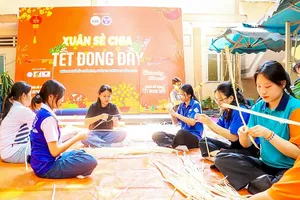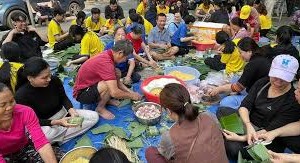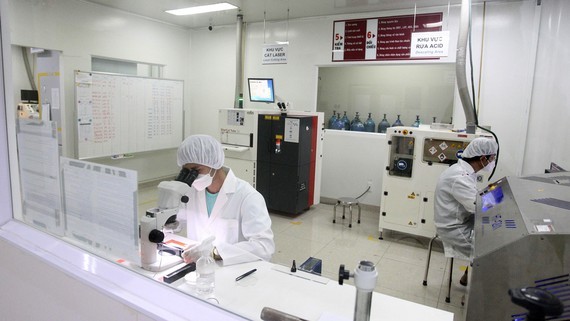 Researching and manufacturing high-tech medical products at USM Healthcare Factory in the Saigon Hi-Tech Park in Ho Chi Minh City. (Photo: SGGP)
Researching and manufacturing high-tech medical products at USM Healthcare Factory in the Saigon Hi-Tech Park in Ho Chi Minh City. (Photo: SGGP)
Continuing to charge off and reschedule debts, reduce taxes and fees
Mr. Dao Minh Chanh said that the positive signs of economic development in the first four months of 2022 were quite clear. Typically, from the beginning of the year to now, foreign investment capital has reached US$1.28 billion, up 12.18 percent of total investment capital over the same period last year. Nearly 7,500 enterprises have reactivated, an increase of 34.02 percent year-on-year, sending the total number of enterprises in the current system to 487,813, with a total capital of VND9.02 quadrillion ($392.87 billion). The total export turnover in the first four months of the year was estimated at $13.9 billion, up 3.6 percent year-on-year. Many enterprises producing key export products, such as computers, electronic products and components, textiles, and garments, have filled their capacity. Especially, garment and textile enterprises saw an increase of 88.2 percent year-on-year in export turnover.
Accompanying businesses, HCMC has been drastically directing districts to effectively disseminate and apply policies to support economic recovery, including a 2-percent reduction in value-added tax and export tax, a 30-percent reduction in land rent, a 50-percent reduction in environmental protection tax on jet fuel, and a 50-percent reduction in registration fee when registering for domestically-manufactured or domestically-assembled cars. Besides, the city has been considering reducing electricity bills for enterprises and people, extending the time to pay income tax, value-added tax, excise tax, and land rent in 2022. More importantly, the city has been working with credit institutions, aiming to reduce interest rates for loans from 0.5 percent to 1 percent from now to 2023.
Mr. Dao Minh Chanh said that with each field, including service, agriculture, science, technology, and public investment, the city had pointed out the implementation focus to help enterprises recover quickly. For example, the industrial sector focuses on restoring production activities, disrupted supply chains, and broken value chains; the agricultural sector focuses on developing the chain of production and consumption of agricultural products and food in the direction of ensuring safety. On the other hand, it will promote the organization of production, preliminary processing, processing, trade promotion, and market development. The service sector focuses on solutions to restore the wholesale and retail trade, transportation, logistics, accommodation, catering, and real estate trading. Specifically, the city focuses on implementing the tourism recovery plan and the logistics development project, developing e-commerce, and completing the legal procedures for the construction of an international financial center.
Improving the investment environment
Along with supporting solutions, the authorities strongly promote administrative procedure reform, creating a favorable investment environment for domestic and foreign enterprises. Firstly, it is to resolutely eliminate sub-licenses, and prepare necessary conditions to call for investment to form large-scale enterprises with strong potential and high competitiveness in the region and internationally. The city has been striving to put into use 100 percent online public services at level 4 to effectively reform administrative procedures, facilitating trade and investment for businesses in the coming time.
Mr. Dao Minh Chanh said that the positive signs of economic development in the first four months of 2022 were quite clear. Typically, from the beginning of the year to now, foreign investment capital has reached US$1.28 billion, up 12.18 percent of total investment capital over the same period last year. Nearly 7,500 enterprises have reactivated, an increase of 34.02 percent year-on-year, sending the total number of enterprises in the current system to 487,813, with a total capital of VND9.02 quadrillion ($392.87 billion). The total export turnover in the first four months of the year was estimated at $13.9 billion, up 3.6 percent year-on-year. Many enterprises producing key export products, such as computers, electronic products and components, textiles, and garments, have filled their capacity. Especially, garment and textile enterprises saw an increase of 88.2 percent year-on-year in export turnover.
Accompanying businesses, HCMC has been drastically directing districts to effectively disseminate and apply policies to support economic recovery, including a 2-percent reduction in value-added tax and export tax, a 30-percent reduction in land rent, a 50-percent reduction in environmental protection tax on jet fuel, and a 50-percent reduction in registration fee when registering for domestically-manufactured or domestically-assembled cars. Besides, the city has been considering reducing electricity bills for enterprises and people, extending the time to pay income tax, value-added tax, excise tax, and land rent in 2022. More importantly, the city has been working with credit institutions, aiming to reduce interest rates for loans from 0.5 percent to 1 percent from now to 2023.
Mr. Dao Minh Chanh said that with each field, including service, agriculture, science, technology, and public investment, the city had pointed out the implementation focus to help enterprises recover quickly. For example, the industrial sector focuses on restoring production activities, disrupted supply chains, and broken value chains; the agricultural sector focuses on developing the chain of production and consumption of agricultural products and food in the direction of ensuring safety. On the other hand, it will promote the organization of production, preliminary processing, processing, trade promotion, and market development. The service sector focuses on solutions to restore the wholesale and retail trade, transportation, logistics, accommodation, catering, and real estate trading. Specifically, the city focuses on implementing the tourism recovery plan and the logistics development project, developing e-commerce, and completing the legal procedures for the construction of an international financial center.
Improving the investment environment
Along with supporting solutions, the authorities strongly promote administrative procedure reform, creating a favorable investment environment for domestic and foreign enterprises. Firstly, it is to resolutely eliminate sub-licenses, and prepare necessary conditions to call for investment to form large-scale enterprises with strong potential and high competitiveness in the region and internationally. The city has been striving to put into use 100 percent online public services at level 4 to effectively reform administrative procedures, facilitating trade and investment for businesses in the coming time.
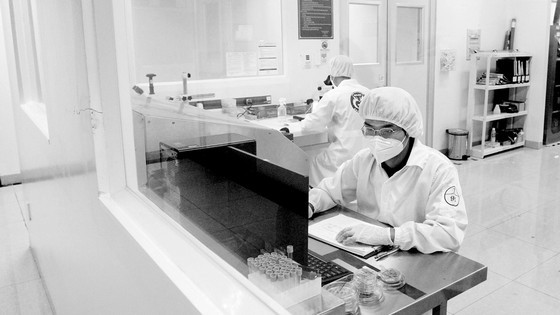 Researching and manufacturing high-tech medical products at USM Healthcare Factory in the Saigon Hi-Tech Park in Ho Chi Minh City. (Photo: SGGP)
Researching and manufacturing high-tech medical products at USM Healthcare Factory in the Saigon Hi-Tech Park in Ho Chi Minh City. (Photo: SGGP)
Mr. Dao Minh Chanh affirmed that HCMC's leaders pledged to improve the administrative reform indices, the provincial public administration and governance efficiency index, and the provincial competitiveness index with practical solutions, straightly solving difficulties, obstacles, and shortcomings. On the other hand, the city has accelerated the disbursement of public investment and private investment attraction and continued to review and propose competent authorities to amend and supplement the overlapping legal provisions. The city will propose mechanisms to attract private investment through socialization and public-private partnership, attracting remittances to invest in the city development. Especially, the city will develop a pilot project of policies and models to mobilize capital for development investment, improve accountability, and speed up the disbursement of public investment. From another perspective, to improve the value of investment attraction, the city will review appropriate policies to quickly and effectively attract large domestic and foreign enterprises to invest with focus, selection, and priority given to projects with advanced technology, new technology, high technology, modern management, innovation capacity, and global supply chain connectivity. Along with that, the city will support small and medium-sized enterprises to improve productivity and quality, creating a foundation for joining the supply chain of FDI enterprises and large private corporations that lead the value chain. "The synchronous solutions from the Government and HCMC and the joint efforts of businesses will be the foundation for the city to accelerate economic recovery and development in the coming time," said Mr. Dao Minh Chanh.
* Mr. Dao Minh Chanh, Deputy Director of HCMC Department of Planning and Investment: Focusing scientific and technological resources on solving urgent problems
HCMC is determined to promote science and technology. Accordingly, it will concentrate scientific and technological resources to solve urgent problems in the health sector, education, and governance in the public sector of HCMC; effectively implement the project to support the development of an innovative start-up ecosystem for the 2021-2025 period, with the focus on forming the Institute of Advanced Technology and Innovation to transfer technology and boost the application of science and technology into production and business activities and city administration. In addition, the city will put into operation the Innovation Startup Center, forming a network of start-up support centers as a foundation for connecting and developing an innovation ecosystem. The city and experts study to promulgate some specific mechanisms and policies to create breakthroughs, mobilize, and maximize social resources in science, technology, and innovation activities.
* Ms. Lam Dieu Tam Hieu, Deputy General Director of Kizuna Company: Soon to form a factory with infrastructure
The group of small and medium-sized enterprises accounts for the majority in the processing, manufacturing, and supporting industries. This group of enterprises has limited resources, so the necessary condition is not only the land to build factories, ready-built factories, and production lines but also the production environment, including hardware and software. In which, the hardware is the synchronous technical infrastructure system of the industrial park, with available modern high-quality factory buildings in an appropriate size. The software is shared resources, such as information technology infrastructure to help enterprises rapidly apply high technology and digital transformation, waste treatment infrastructure, and monitoring management software to help businesses fulfill the obligation to protect the environment following regulations. In the short term to 2025, HCMC needs to focus on forming factory areas with infrastructure and services in the available land fund in existing export processing zones and industrial park clusters.
HCMC is determined to promote science and technology. Accordingly, it will concentrate scientific and technological resources to solve urgent problems in the health sector, education, and governance in the public sector of HCMC; effectively implement the project to support the development of an innovative start-up ecosystem for the 2021-2025 period, with the focus on forming the Institute of Advanced Technology and Innovation to transfer technology and boost the application of science and technology into production and business activities and city administration. In addition, the city will put into operation the Innovation Startup Center, forming a network of start-up support centers as a foundation for connecting and developing an innovation ecosystem. The city and experts study to promulgate some specific mechanisms and policies to create breakthroughs, mobilize, and maximize social resources in science, technology, and innovation activities.
* Ms. Lam Dieu Tam Hieu, Deputy General Director of Kizuna Company: Soon to form a factory with infrastructure
The group of small and medium-sized enterprises accounts for the majority in the processing, manufacturing, and supporting industries. This group of enterprises has limited resources, so the necessary condition is not only the land to build factories, ready-built factories, and production lines but also the production environment, including hardware and software. In which, the hardware is the synchronous technical infrastructure system of the industrial park, with available modern high-quality factory buildings in an appropriate size. The software is shared resources, such as information technology infrastructure to help enterprises rapidly apply high technology and digital transformation, waste treatment infrastructure, and monitoring management software to help businesses fulfill the obligation to protect the environment following regulations. In the short term to 2025, HCMC needs to focus on forming factory areas with infrastructure and services in the available land fund in existing export processing zones and industrial park clusters.
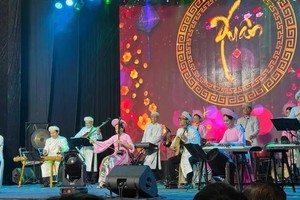
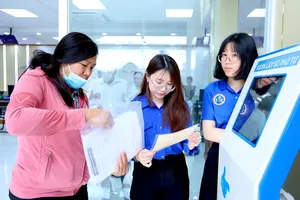
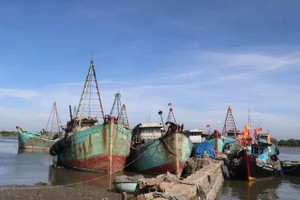
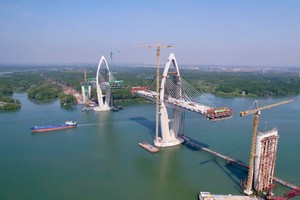
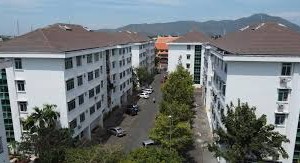
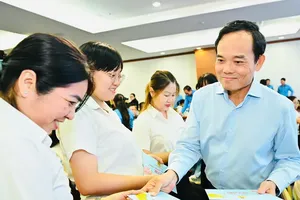


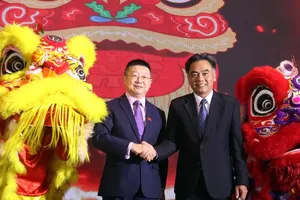
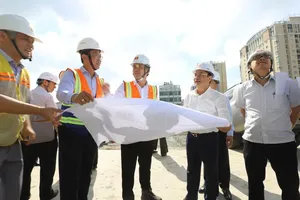
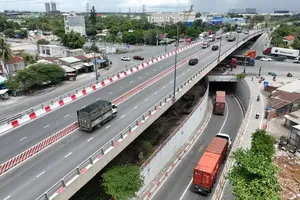
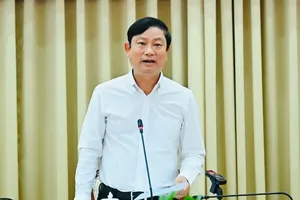
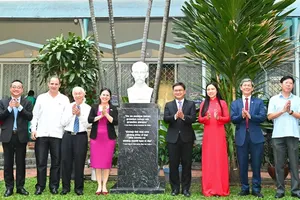
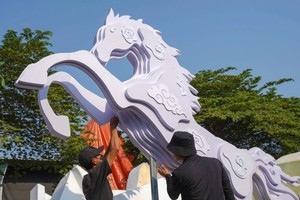
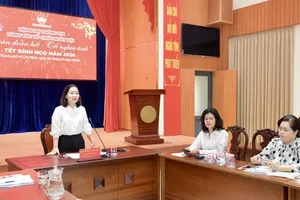
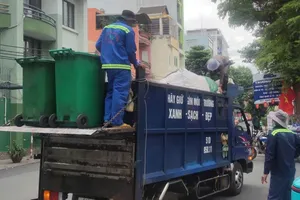
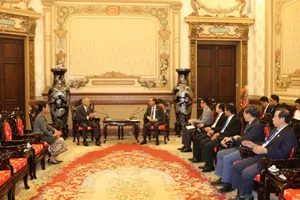
)
